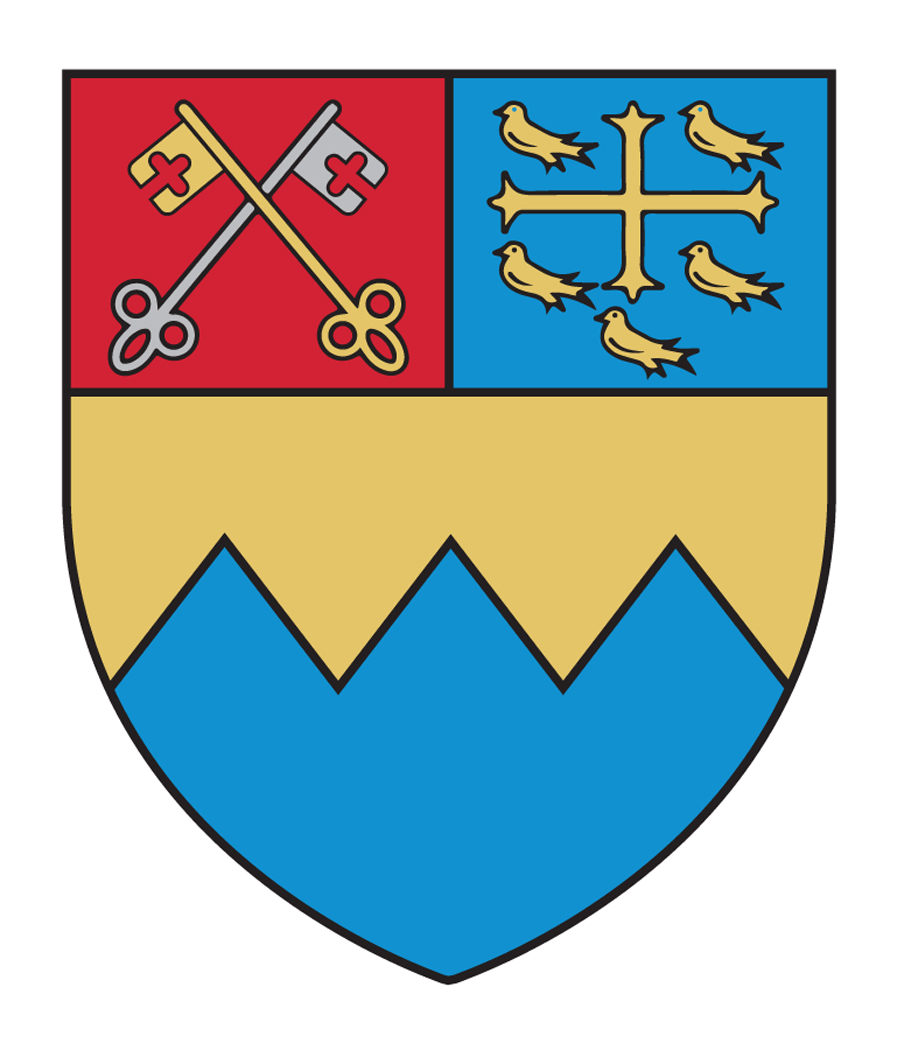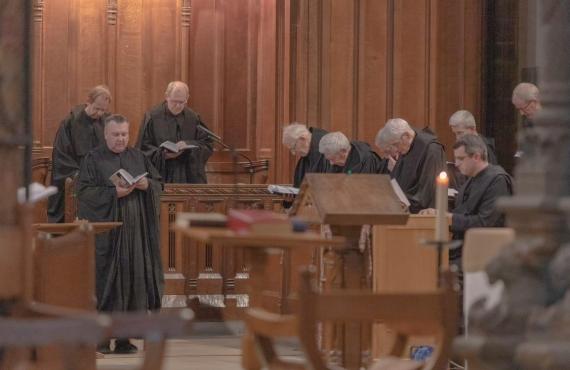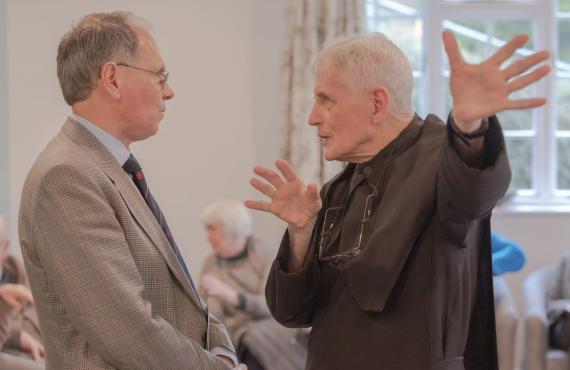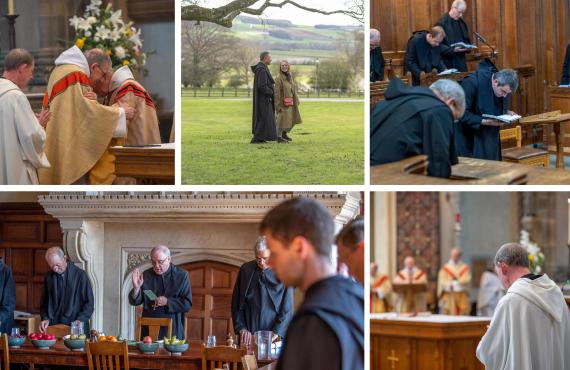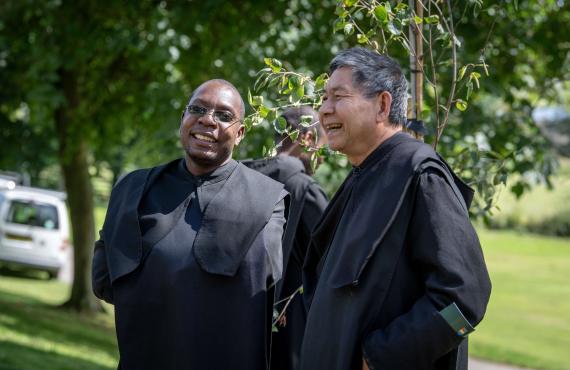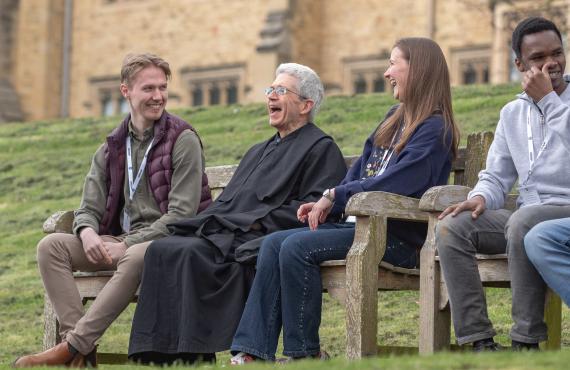Monastic Vocation
When Christianity was no longer threatened with persecution by the Roman Empire, early in the 4th century, some people felt that choosing Christ was no longer the deep and radical matter it had once been. They wanted to live out their baptism in a special way, turning themselves over to seeking God and abandoning all else. They left the city for the desert, leaving possessions, career, even family behind.
At first monks were solitary (‘monk’ comes from ‘monachos,’ meaning single or solo) but soon real strength was found from living in small communities guided by wise man, an Abbot. And, while many people feel called to family life, or to specific work such as medicine or teaching, there are still people today who feel called to monastic life.
How does a man know if he is called to be a monk?
There are many paths to the decision to join a monastery. For some it is the deep impression made on them by monks - perhaps in real life, maybe in the lives of the Saint. For others it is the ideals of the life: prayer, brotherly love, honest work and a unity of life that comes from faith and generosity, centred on Christ.
Reading the 'Rule of St Benedict', or books about it, can inspire him. And knowing his own life story, his gifts and weaknesses, and having an awareness of an attraction to monastic life which he can only partly explain - all these can be part of the picture.
